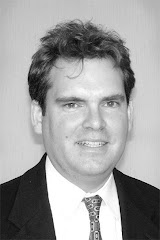Soon, if the time is not at hand, white Iowans won't have the luxury of being racists.
Rapidly changing demographics mean that places like Carroll, even if they remain largely lily white, will need to become more accepting of cultural diversity for economic reasons: people in other cities with whom we must interact in business are increasingly going to look less like us.
It used to be the argument against racism was made on moral and religious grounds. They still stand.
But those who haven't been persuaded may want to reconsider. A May census report shows that 47 percent of the nation's children under age 5 are minorities - and 25 percent of all kids in America that age are Hispanic.
The census is projecting that by 2042 the United States will be a "majority- minority" nation. In other words, whites of European descent will make up less than 50 percent of the population. For young people those numbers will change more quickly.
Which raises a concern: In areas with little diversity, like Carroll, is there a danger of a sort of cultural isolation that could hamper businesses here, prevent new development as decisions increasingly will be made by minorities?
Are there steps we can take to foster an accepting environment that will make a dramatically changed America in 2030 comfortable with what likely will remain a white Carroll?
"We all know that economic development is about building relationships," says Paul Lasley, chairman of the sociology and anthropology departments at Iowa State University. "If we do not have the ability to build relationships, we are going to be disadvantaged.
An expert on rural issues, Lasley is urging students to look at the imminent changing of the colors in the U.S. population as an opportunity.
"I have been telling students at ISU for years that unless they have a second language they are going to find themselves increasingly disadvantaged," Lasley said.
In particular, rural Iowans with agricultural interests should heed this advice as it can benefit trading opportunities.
"Companies need folks who are conversant in either Spanish or Chinese," Lasley said.
I asked Lasley if largely white rural communities like Carroll were in jeopardy of losing business and jobs and opportunities simply because we can't relate or connect to a new world that won't look like ours.
Not so fast, Lasley said.
Money still talks.
Lasley expects that in the future the divide in America will be less about race than education and income levels.
"Skin color is going to become less important. but social class may become more important," Lasley said. "I see that among young people."
Wednesday, July 01, 2009
Subscribe to:
Post Comments (Atom)





No comments:
Post a Comment